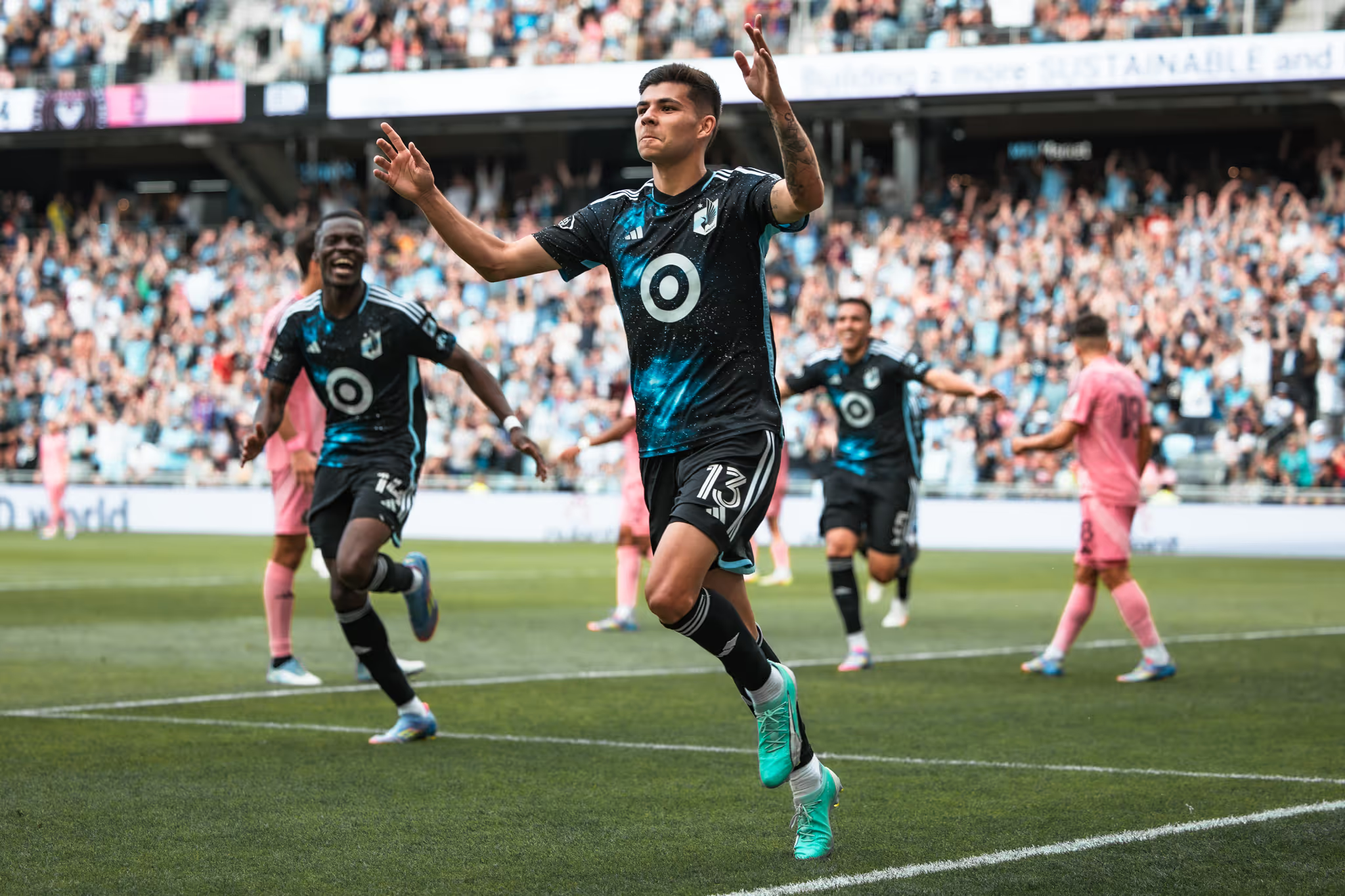
In a commanding 4–1 win over Inter Miami CF, Minnesota United delivered one of their most complete performances of the season, sending a clear message to the rest of Major League Soccer: possession means little without purpose. While Inter Miami held 74% of the ball and fielded global icons like Lionel Messi, Sergio Busquets, and Jordi Alba, it was Minnesota's tactical discipline, counterattacking efficiency, and team cohesion that stole the spotlight on Saturday afternoon.
A Tactical Masterclass from Eric Ramsay
Coach Eric Ramsay has been quietly molding Minnesota United into one of the league’s most tactically sound sides, and this match served as a culmination of that progress. Repeating the same 3-4-2-1 formation that dismantled Austin FC 3–0 the week prior, Ramsay showed faith in his current group, and they repaid him with another dominant outing.
The match began evenly, but Minnesota struck first in the 33rd minute. Robin Lod, orchestrating from midfield, combined with Carlos Harvey and Joaquín Pereyra in a slick passage of play. Harvey found Bongokuhle Hlongwane, who finished clinically across the face of goal. The strike injected confidence into the Loons, who only grew stronger from that point.
Their second goal came just before halftime from a simple yet effective throw-in. Defender Michael Boxall launched the play, and Nicolás Romero's near-post involvement distracted Inter Miami’s defense enough to leave Anthony Markanich wide open at the far post. Markanich slotted home, marking his second goal in two games and sending Minnesota into the break with a deserved 2–0 lead.
Miami's Star Power Falls Flat
Lionel Messi, though he managed to score his second goal in as many games early in the second half, cut a frustrated figure for most of the match. Bereft of his usual supporting cast—Fafa Picault and Luis Suárez were both sidelined—Messi's isolated brilliance couldn't compensate for Miami’s tactical disarray and defensive frailties.
His 48th-minute goal briefly suggested a possible comeback, but Minnesota’s maturity shone through. The Loons didn’t panic or lose their structure. Instead, they absorbed Miami’s brief resurgence, adjusted shape with a key substitution—Kelvin Yeboah replacing the injured Jefferson Diaz—and remained in control of the tempo.
Minnesota then extended their lead in the 63rd minute, thanks to a calamitous own goal by Marcelo Weigandt. Inter Miami’s inability to manage set pieces and second balls once again reared its head. That third goal effectively ended the contest, exposing Miami’s vulnerabilities and solidifying Minnesota's dominance.
Robin Lod Caps the Rout
The final goal epitomized Minnesota’s strategy: clinical, composed, and cohesive. Tani Oluwaseyi initiated a swift counterattack, pulling defenders out of position before laying it off to Robin Lod, who buried the chance to seal a comprehensive 4–1 win. The goal was a reward for Lod’s consistent performance throughout the match, both as a playmaker and finisher.
The Bigger Picture: A Tale of Two Clubs
For Minnesota United, this win marked a significant step forward. Now third in the Western Conference with 23 points, the Loons are steadily becoming one of the league’s most balanced teams. Their ability to punch above their weight against high-profile opponents without sacrificing their identity is a testament to Ramsay’s influence and the squad’s buy-in.
Conversely, Inter Miami’s issues are becoming increasingly apparent. Despite sitting fourth in the Eastern Conference with 21 points, they’ve won just two of their last six matches. With Messi often isolated and the team over-reliant on individual brilliance, the Herons are failing to convert their star-studded lineup into consistent performances. The absence of key players only magnified their over-dependence on their top three.
Final Thoughts
This was more than just a bad day at the office for Inter Miami—it was a strategic dismantling. Minnesota United executed a near-flawless plan, capitalizing on their strengths and exposing Miami’s weaknesses with clinical precision. The result not only boosts Minnesota's standing but also raises serious questions about Miami’s tactical depth and long-term viability in high-stakes matches.
With the MLS season heating up, Minnesota look like a team poised for a deep run. Inter Miami, meanwhile, may have the world’s best player—but without cohesion, that may not be enough.







